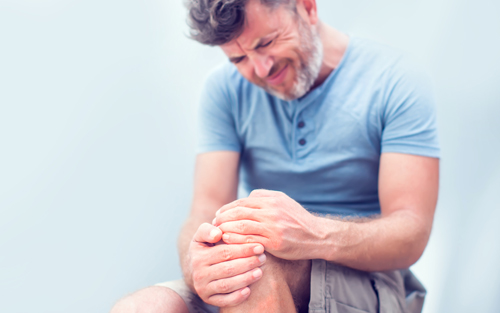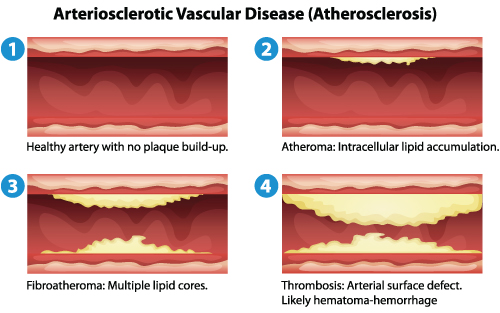Don’t ignore the pain in your legs, it could be a ticking time-bomb! Leg pain is often an indication that a grave health issue is developing.

When you have pain in your legs while resting or lying down for no apparent reason, this may be an indication that something is wrong in the nervous or vascular system. Sudden, severe, or persistent pain such as this should be evaluated by your physician before it evolves into a full-blown emergency or worse.
yourfootpalace.com gathered information about leg pain, its causes, threats, and treatments, then answers several frequently asked questions.
My Legs Hurt
Unless it’s the morning after leg day at the gym, stiffness and pain in your legs is not a good sign. When the following happen frequently, it’s an indication that should lead to a conversation with your doctor:
• Regularly waking up in the middle of the night with leg or foot cramps.
• Numbness or muscle pain in your legs in the morning.
• Discomfort or pain in your legs after sitting for a while.
• Rapid loss of leg muscle definition accompanied by pain and/or discomfort.
• Spontaneous bruising on the legs and/or feet.
• Frequent or lasting numbness of any portion of the legs or feet, and especially the toes.
Any of these symptoms appearing spontaneously and for no apparent reason are cause for great concern.
Leg Pain Causes
Leg pain may occur from:
• Dehydration.
• Natural wear and tear.
• Injuries to bones or joints.
• Injuries to tendons, ligaments, muscles, or soft tissue.
• Overuse (prolonged strenuous activities).
• Stress.
• Vitamin deficiency.
• Neuropathy (nerve damage)
• Problems in the lower spine.
• Use of tight or heavy belts.
• Sciatica.
Sciatica is shooting pain that runs from the lower back, through the buttocks, and down the back of the leg. Pressure on the sciatic nerve is one probable cause and is commonly seen in men who carry large wallets in their back pocket. The pain will often subside by relieving the pressure on the nerve.

The following causes are generally associated with poor circulation:
• Varicose Veins
• DVT or Deep Vein Thrombosis (blood clots forming in veins deep within the body and not always accompanied by symptoms).
• PAD or Peripheral Artery Disease (the narrowing of peripheral arteries that serve the head, stomach, arms, and legs)
• CAD or Coronary Artery Disease (the hardening or narrowing of the arteries that supply blood to the heart muscle)
Both PAD and CAD can be caused by atherosclerosis. Atherosclerosis is an accumulation of cholesterol plaque along the walls of arteries. This accumulation causes the obstruction of normal blood flow, and when these plaques rupture, they can cause an acute blockage of the artery.

When pain and discomfort in either or both legs are caused by varicose veins, DVT, PAD, CAD, or a combination of them, immediate medical treatment should be sought.
What Can Leg Pain Lead to?
Sudden, severe, or persistent leg pain should never, ever be ignored. If left untreated, leg pain may lead to:
• Blood clots traveling to the lungs.
• Stress on the heart.
• Fatigue.
• Amputation.
• Stroke.
• Potential heart failure.
• Death.
While the majority of leg pain experiences are passing in nature, they should never be ignored.

Leg Pain Treatment
In cases of leg pain due to exercise, overuse, injuries, or neuropathy, the following may offer some relief:
• Avoid wearing constrictive clothing.
• Keep yourself well-hydrated.
• Get a massage.
• Apply cold compresses.
• Get some rest.

When the pain is sudden, severe, or persistent, seek immediate medical attention. Ignoring this type of leg pain may lead to serious health consequences.
Frequently Asked Questions
Question: Is leg pain a sign of cancer?
Answer: Possibly. If bone cancer is the cause, the pain may cause a dull or deep ache in a bone region like the pelvis, ribs, arms, and legs. In this scenario, weight loss and fatigue will often accompany the pain.
Question: Can a person die from peripheral artery disease?
Answer: Yes. PAD can cause kidney failure, lead to foot or leg amputation, and because of atherosclerosis, many people suffering from PAD will die from a heart attack, sudden cardiac arrest, or stroke.
As PAD often shows no symptoms, mature adults should be tested during regular medical checkups.
Question: Can a vitamin deficiency cause leg pain?
Answer: Yes. Some symptoms of a vitamin D deficiency may include fatigue and muscle aches or weakness.

Question: Does magnesium help aching legs?
Answer: Potentially. Another common cause of leg cramps and pain is magnesium deficiency. A primary symptom of a magnesium deficiency in the body is cramps, spasms, pain, and aches in the legs and feet.
Seek medical advice before adding or removing dietary supplements from your diet.
Question: What is restless leg syndrome (RLS)?
Answer: Restless leg syndrome or RLS is a condition which causes an uncontrollable urge to move your legs when resting. RLS can be treated by medication prescribed by your primary care physician.
Pay Attention to Your Aching Legs
Frequent or severe leg pain when resting may be an indication of a severe internal medical condition and should not be neglected.
In this article, you discovered what causes leg pain, the threats it may represent, some treatments for it, and answers to frequently asked questions.
Ignoring the sudden, sharp, or persistent pain you feel in your legs may lead to serious medical issues including chronic fatigue, amputation, stroke, or death. This type of pain should be addressed immediately, as part of successful treatment depends on early detection.
Sources:
https://www.ninds.nih.gov/Disorders/Patient-Caregiver-Education/Fact-Sheets/Restless-Legs-Syndrome-Fact-Sheet#3
https://www.health.harvard.edu/pain/when-walking-makes-your-legs-hurt
https://www.seniorliving.org/health/causes-leg-pain/
https://www.nhlbi.nih.gov/health-topics/ischemic-heart-disease
https://www.heart.org/en/health-topics/consumer-healthcare/what-is-cardiovascular-disease/coronary-artery-disease
https://www.cdc.gov/heartdisease/coronary_ad.htm
(706) 521-5290
https://plus.google.com/+FootPalaceMassageSpaBraselton
(678) 963-5958
To view the original version on Foot Palace, visit: https://www.yourfootpalace.com/why-do-both-my-legs-hurt/
No comments:
Post a Comment
Note: Only a member of this blog may post a comment.